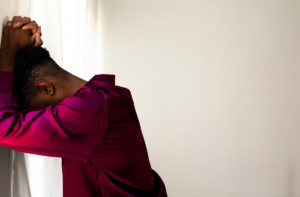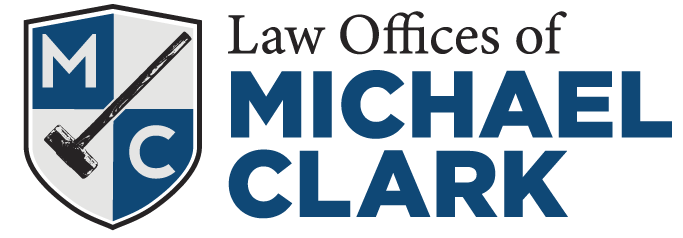
Personal injury law protects individuals harmed by the wrongful actions of others, providing a legal pathway to seek compensation and justice. For childhood sexual abuse survivors in Washington State, personal injury law offers crucial protections through civil litigation, separate from criminal proceedings. Understanding these protections can empower survivors seeking accountability and compensation for the profound harm they’ve suffered.
How Personal Injury Law Applies to Childhood Sexual Abuse
Childhood sexual abuse cases fall under personal injury law because they involve intentional harm causing physical, emotional, and psychological injuries. Unlike criminal cases that focus on punishing perpetrators, personal injury lawsuits center on compensating victims and holding responsible parties financially accountable.
Washington’s personal injury law recognizes that childhood sexual abuse often results in complex, long-lasting injuries that may not become apparent until years later. This is why the state has specific statutes of limitations designed to protect survivors’ rights to seek compensation when they’re ready.
Washington’s Updated Personal Injury Protections: RCW 4.16.340
Recent changes to Washington’s personal injury law have significantly strengthened protections for childhood sexual abuse survivors under RCW 4.16.340
For abuse occurring on or after June 6, 2024: No statute of limitations exists, meaning survivors can file personal injury lawsuits at any time.
For abuse occurring before June 6, 2024: Survivors have three years from the later of several discovery points:
- Three years from the abuse itself
- Three years from discovering the abuse caused their injuries
- Three years from discovering new or deeper impacts
For minors, the statute of limitations doesn’t begin until age 18, recognizing that children cannot pursue legal action independently.
The Discovery Rule in Personal Injury Cases
The “discovery rule” is crucial for childhood sexual abuse survivors. This legal principle acknowledges that trauma can significantly impact a person’s ability to understand the connection between past abuse and current problems.
Many survivors don’t immediately realize that depression, anxiety, relationship difficulties, or substance abuse stem from childhood sexual abuse. The discovery rule protects survivors by starting the statute of limitations when they discover—or reasonably should have discovered—the connection between their abuse and injuries.
Who Can Be Held Liable in Personal Injury Claims
Personal injury law allows survivors to seek compensation from multiple responsible parties:
Individual Perpetrators: The person who committed the abuse faces direct liability for all resulting damages.
Institutional Defendants: Organizations like schools, churches, youth programs, or childcare facilities may be liable if they failed to properly screen employees, ignored warning signs, or had inadequate supervision policies.
Third Parties: Other individuals or entities with a duty to protect the child but failed to do so may also face liability.
Types of Personal Injury Damages Available
Personal injury law recognizes childhood sexual abuse causes extensive harm across multiple life areas:
Economic Damages:
- Medical expenses for therapy and psychiatric treatment
- Lost wages and reduced earning capacity
- Educational costs, if abuse impacted academic performance
Non-Economic Damages:
- Pain and suffering
- Emotional distress
- Loss of enjoyment of life
Punitive Damages: In cases involving particularly egregious conduct, courts may award punitive damages to punish defendants and deter similar behavior.
Personal Injury vs. Criminal Cases
While both may involve the same conduct, they serve different purposes:
Criminal Cases: Prosecuted by the state, focus on punishment, require proof “beyond a reasonable doubt”
Personal Injury Cases: Filed by survivors, focus on compensation, require proof by “preponderance of the evidence”
Many survivors find personal injury litigation empowering because it gives them control over the process and focuses on their healing and recovery needs.
Building a Strong Personal Injury Case
Successful cases typically involve:
- Documenting the abuse through medical records, therapy notes, or witness statements
- Establishing damages with medical and mental health experts
- Proving liability by demonstrating how defendants caused or contributed to harm
- Calculating fair compensation for all current and future losses
Your Personal Injury Rights and Next Steps
If you’re a childhood sexual abuse survivor in Washington, personal injury law provides powerful tools for seeking justice and compensation. The updated RCW 4.16.340 protections give you more time and flexibility than ever before.
At the Law Offices of Michael Clark, we bring over 25 years of personal injury experience to these challenging cases. Our trauma-informed approach respects your timeline and comfort level throughout the legal process.
Contact the Law Offices of Michael Clark today for a free, confidential consultation about your personal injury case. Our experienced attorneys will help you understand your legal options and determine the best path forward.
Pursuing a personal injury case is about more than money—it’s about accountability, preventing future abuse, and providing survivors with resources needed for healing and recovery.
For additional information about Washington’s legal protections, we encourage you to Learn More:
Or visit the Washington State Legislature website and the Washington State Department of Social and Health Services for comprehensive support resources.
Get the experienced legal representation you deserve—contact us today to take the first step toward justice and recovery.
